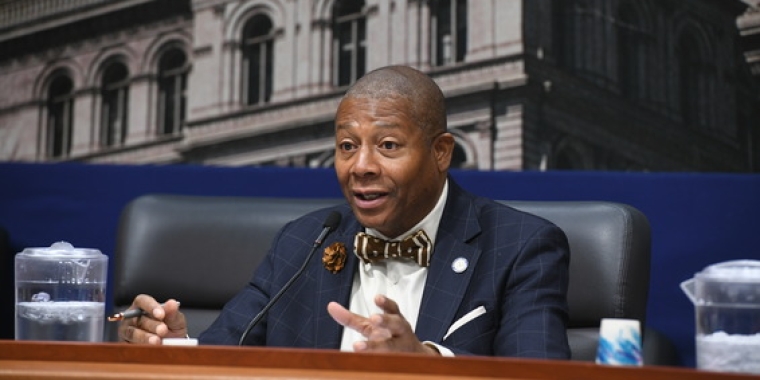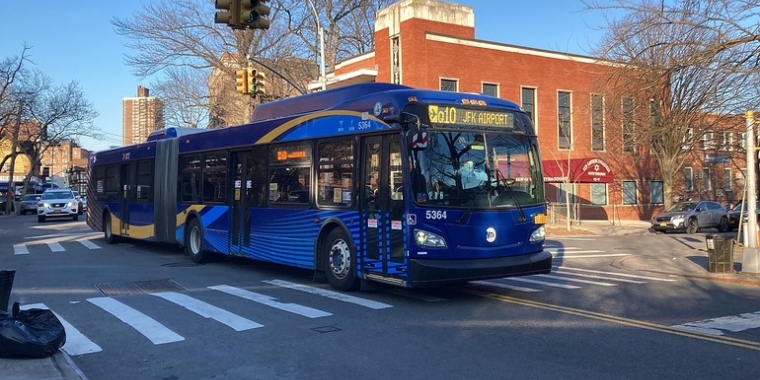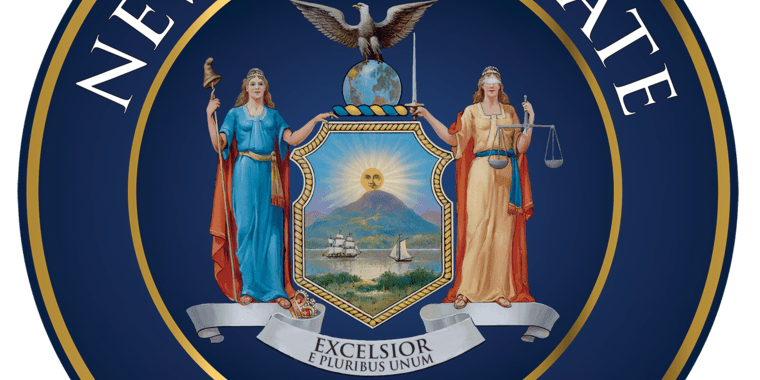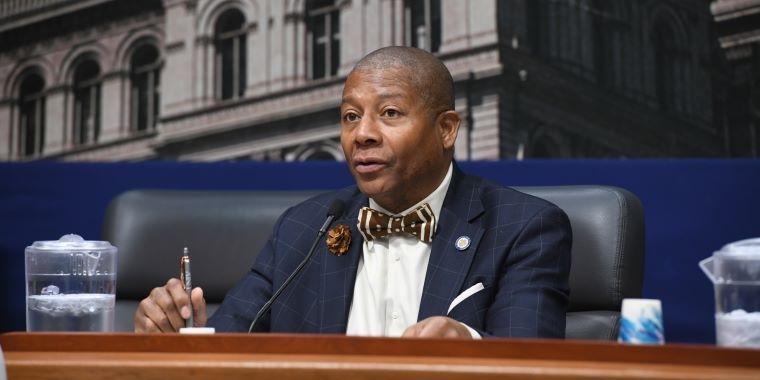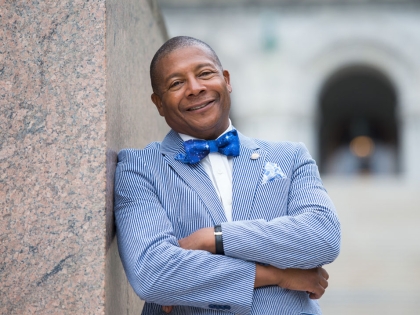
What if Malcolm X were alive today? - Senator Sanders Holds Community Discussion
James Sanders Jr.
February 26, 2015
-
ISSUE:
- Civil Rights
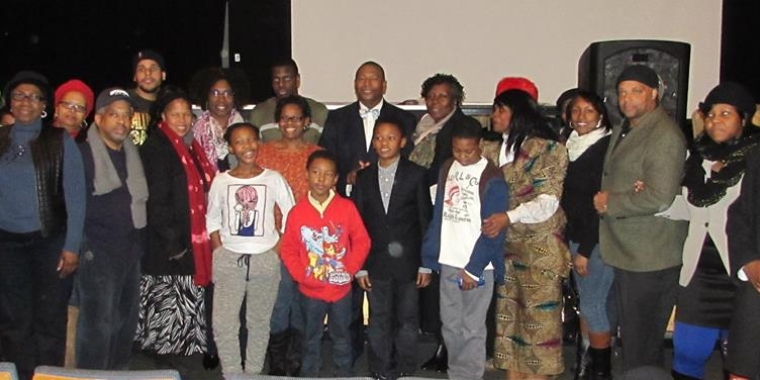
State Senator James Sanders Jr. (D-Rochdale Village) marked the 50th Anniversary of the Assassination of Malcolm X as so many others did, by attending a memorial commemoration in Harlem at the educational center named after the slain human rights leader. It was the site of the former Audubon Ballroom, the location where Malcolm X was gunned down. A single blue spotlight illuminated the area where he drew his last breath.
During his remarks Senator Sanders recalled how much the Muslim minister known as El-Hajj Malik El-Shabazz had influenced him on a personal level and how his impact on the world can still be felt today.
“They thought they could get rid of him, but he’s alive today. I saw him leading a march in Ferguson, I saw him in Staten Island,” Sanders said referring to the nationwide demonstrations over the police killings of Michael Brown and Eric Garner.
Sanders also called on government officials to re-open the investigation into the assassination of Malcolm X and to make all of the case files public.
Later that day the senator led a successful community forum at the High School For Law Enforcement and Public Safety in Jamaica, discussing what the future would have held for Malcolm X if he had not been killed. Dozens of residents attended the forum despite the inclement weather.
“I will attempt to answer the toughest question that you can ask about Malcolm X and that is: “Where was he going,” Sanders said. “ In order to stop a person from going someplace, you have to have some idea where they are headed, so I would suggest that Malcolm’s enemies had more of an idea where he was going than we do.”
Nevertheless, Senator Sanders presented three areas of possibility. He suggested that Malcolm X could have become an Imam or religious teacher, a politician, or joined an armed defense group.
Malcolm X was a member of the Nation of Islam, but during a trip to Mecca he began to learn and appreciate the tenants of Sunni Islam. He saw people and places that changed his views on racism and civil rights and he began to clash with the Nation’s support of segregation. Later during a trip to Egypt, Malcolm met with leading Sunni authorities who gave him permission to open a religious school and teach Sunni Islam in America, something they had never allowed anyone to do before, including the Nation of Islam. Another clue that Malcolm was headed in a religious direction was his creation of the Muslim Mosque Inc., an Islamic organization, where he planned to preach Sunni beliefs.
There are also several suggestions in Malcolm’s life that point towards a run for elected office. He was a great admirer of Adam Clayton Powell Jr., the first African-American from New York to be elected to congress, a popular and powerful Democrat, who served as a national spokesman on civil rights and social issues. Also, according to historian William Sales, Malcolm had an appointment to discuss a run for the City Council shortly before he was killed.
Malcolm X formed the Organization of Afro-American Unity, which sought to reconnect African Americans with their heritage, establish economic independence, and promote self-determination. The organization also recognized necessity of seizing local politics and sought to have its members take positions on local school boards. When Malcolm attended the March on Washington , he noticed that the key elected officials who were fighting against the advancement of African Americans were from primarily black districts and could be voted out, a view he expressed in his speech, “The Ballot or the Bullet.”
“Malcolm examined all things,” Sanders said. “He was not afraid of new ideas.”
Senator Sanders also hypothesized that Malcolm X may have considered entering the field of armed self defense, following in the footsteps of groups like Deacons For Defense and Justice, an organization that practiced self-defense methods in the face of the racist oppression that was carried out under the Jim Crow Laws of local and state government officials and racist vigilantes.
“There was a myth of non-violence during the civil rights movement, when we were the only ones being non-violent, however that period was not without us defending ourselves,” Sanders said. “There were very worthy organizations that defended the civil rights groups like the Deacons for Defense and Justice.”
Further, Malcolm was a member of the Revolutionary Action Movement (RAM), a semi-clandestine organization and the paramilitary wing of the OAAU, and a precursor to the Black Panther Party. Its leader Max Stanford was a close associate of Malcolm X . They had discusses how to use RAM’s force to protect civil rights leaders like the Rev. Dr. Martin Luther King Jr. RAM also provided security for Malcolm X after he separated from the Nation of Islam.
“Since no one can tell you for sure what was in Malcolm X’s mind,” Sanders concluded. “These are just some of my thoughts.”
